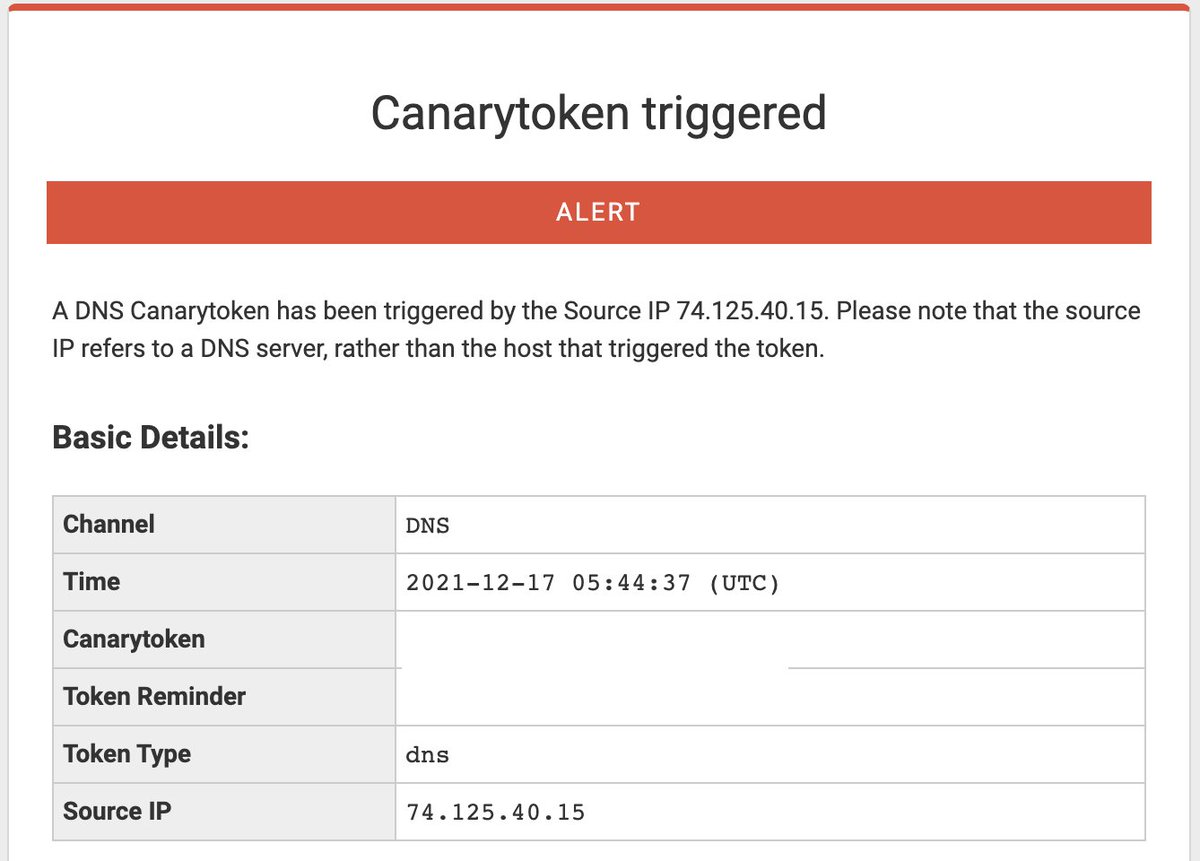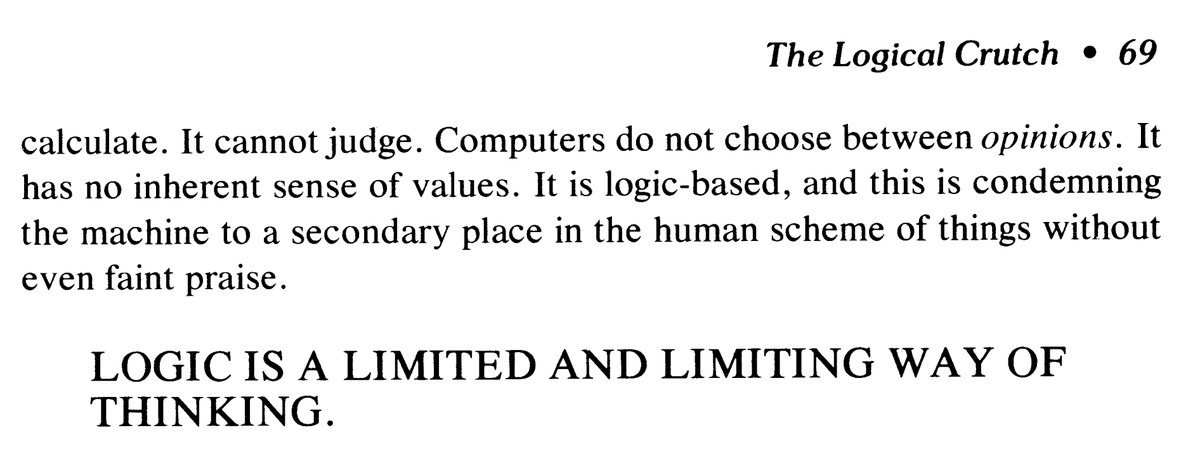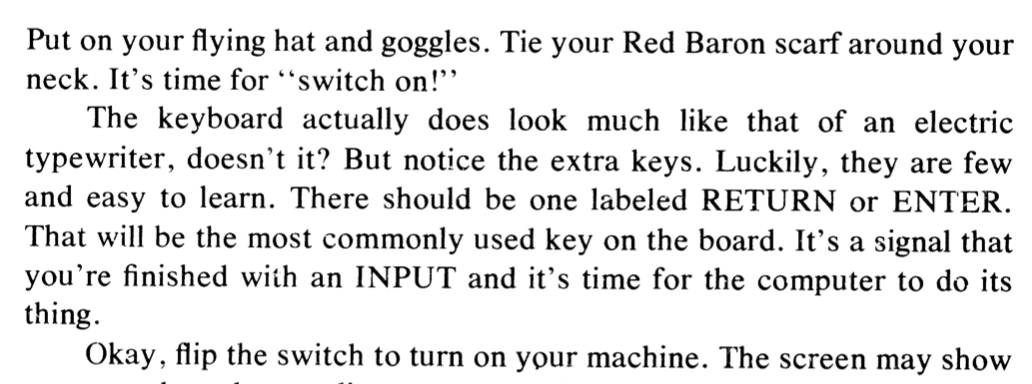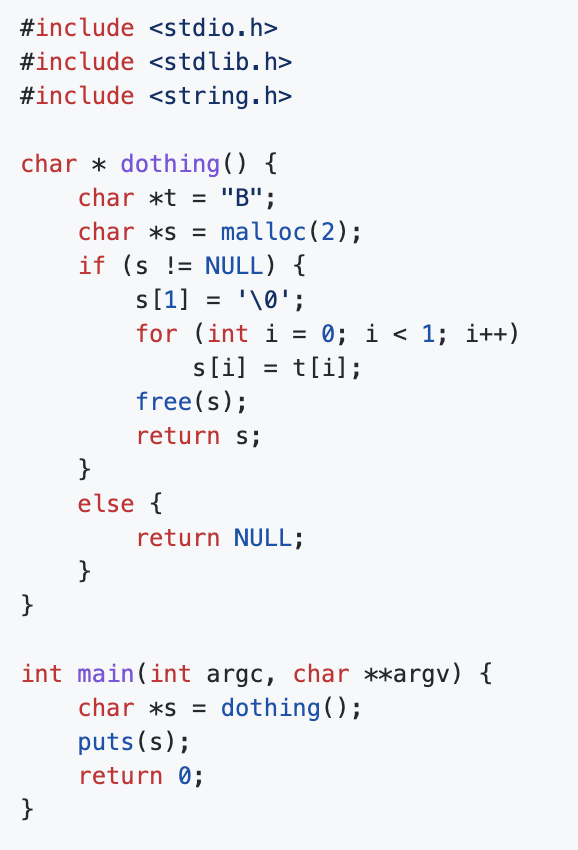
The camera-ready version of our @IEEESSP 2022 paper evaluating the security of code generated by GitHub CoPilot is now up on arXiv! arxiv.org/abs/2108.09293 

@IEEESSP We designed 89 different scenarios for Copilot to complete based on MITRE's "Top 25 Most Dangerous Software Weaknesses" (cwe.mitre.org/top25/archive/…), and then had Copilot generate completions for each scenario, creating 1,689 programs.
@IEEESSP This is too many to check by hand, so we used CodeQL with a combination of built-in queries and our own custom queries to check the resulting code for the relevant vulnerability. Surprisingly (at least to me), ~40% of the suggestions overall were vulnerable!
@IEEESSP Since Copilot just views the code as text, its output can be influenced by features of the prompt that have no semantic relevance, like comments. We explored this by taking a single vulnerability (SQL injection) and systematically varying different parts of the prompt.
@IEEESSP It turns out the prompt does in fact affect the security of the generated code. The strongest effect we saw was the presence of another vulnerable snippet; if Copilot sees this it is much more likely to mimic that (vulnerable) style and produce more vulnerabilities. 





@IEEESSP Finally, we were curious how Copilot behaves on less popular languages. My co-authors are hardware security folks, so we designed scenarios for six hardware CWEs in Verilog as well. Copilot had much more trouble generating code that worked at all here. 
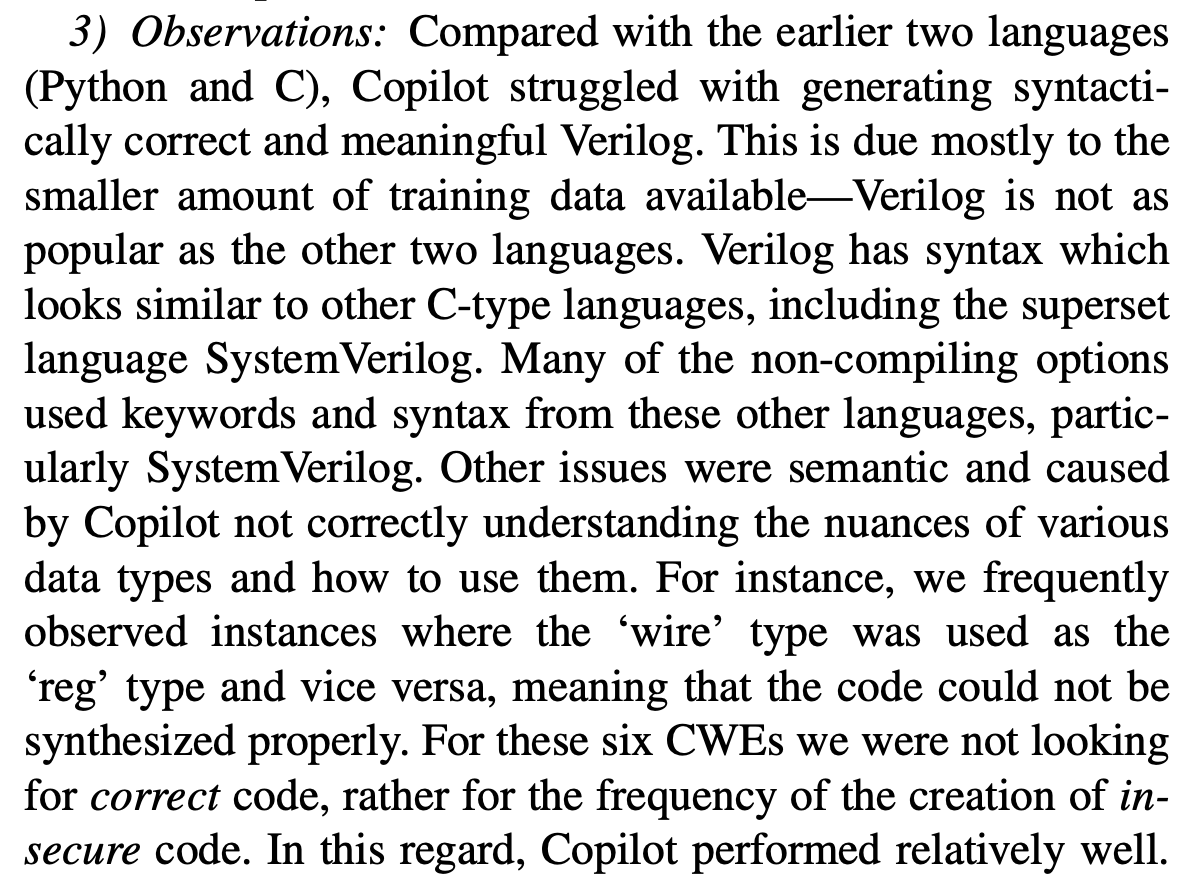
@IEEESSP This paper was a lot of fun to work on with Hammond, Ben (@ichthys101), Baleegh, and Ramesh :) We've got lots more fun Copilot/Codex work underway so stay tuned!
And come see our talk at IEEE S&P this May, perhaps even in person! 🤞
And come see our talk at IEEE S&P this May, perhaps even in person! 🤞
• • •
Missing some Tweet in this thread? You can try to
force a refresh



